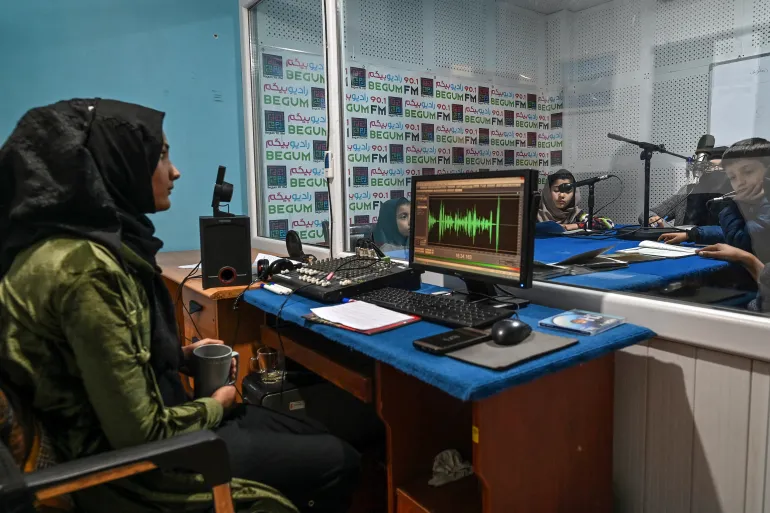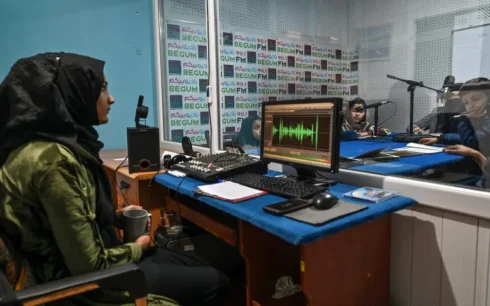Media watchdogs and journalist organizations have condemned the Taliban’s decision to shut down Radio Begum, a Kabul-based station focused on women’s issues, calling it part of a broader crackdown on independent journalism.
The Afghanistan Journalists Center (AFJC) and the Afghanistan Journalists Support Organization (AJSO) described the move as an attempt to “silence diverse voices” and restrict the free flow of information. In a statement on Tuesday, the AJSO said the closure of Radio Begum reflected the Taliban’s “continuous pressure on independent media.”
The organization emphasized that the station had been operating legally with an official broadcasting license and accused the Taliban of shutting it down “non-transparently and unjustly.” The AFJC also denounced the action, arguing that it violated the country’s media laws, which guarantee press freedom.
The shutdown has drawn international condemnation, with press freedom organizations and civil society groups urging the Taliban to respect commitments to human rights and free speech.
Taliban officials defended the decision, saying that Radio Begum had violated broadcasting regulations by airing content from foreign-based television stations without proper authorization. The Taliban’s Ministry of Information and Culture stated that the station’s operations would remain suspended until a “thorough review” was completed.
The closure is part of a broader pattern of restrictions on the press since the Taliban returned to power in 2021. According to the AFJC, at least 18 media outlets have been forced to shut down in the past year due to Taliban orders or operational restrictions. Among them, 14 radio and television stations have not been permitted to resume broadcasting.
Founded on March 8, 2021—International Women’s Day—Radio Begum provided educational and awareness programs for women, a demographic that has faced increasing restrictions under Taliban rule.





